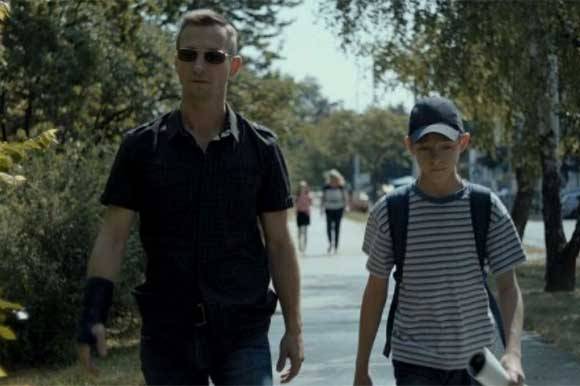It was a year of an absolutely record spending by international productions filming in Croatia. According to the requests for cash rebates (12 projects in 2019), local spend amounted to over 50.6 m EUR / over 377 m HRK in 2019.
Croatian beneficiaries of the MEDIA sub-programme of the Creative Europe successfully concluded 2019 with a total grant of 805,831 EUR, which is the largest annual amount achieved in terms of funds since the Croatian entry into the MEDIA Programme.
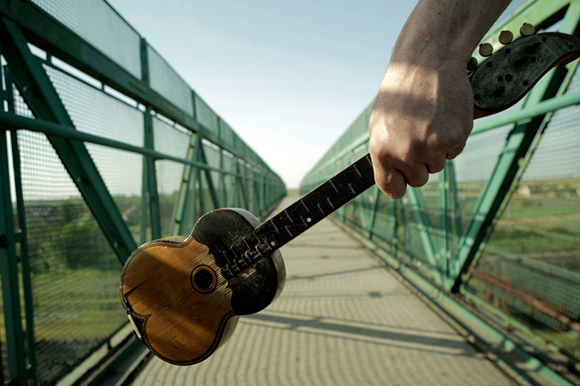 Christopher Peter Marcich was unanimously elected for a four year term as the new Chief Executive Officer of the Croatian Audiovisual Centre (HAVC), starting 1 May 2019.
Christopher Peter Marcich was unanimously elected for a four year term as the new Chief Executive Officer of the Croatian Audiovisual Centre (HAVC), starting 1 May 2019.
In 2019, Croatia announced that it will build a new film studio near Zagreb, to accommodate its rapidly growing business as a services provider for both domestic and international productions. The new initiative was introduced by the Croatian Audiovisual Centre, together with local producers and the Ministry of Culture.
In addition to the new Law on Audiovisual Activities dating from 2018, the Ordinance on the Promotion of Investment in the Production of Audiovisual Works was adopted in 2019.
The adoption of a new Rulebook on the procedure, criteria and deadlines for the implementation of the National Programme for the Promotion of Audiovisual Creativity, is currently in its final stages.
The Zagreb Film Office was established in order to provide services to international and local crews filming in Croatia’s capital.
In June 2019, Croatian main independent screening venue Kino Europa was closed following months of political pressure.
In 2019, Croatian films travelled to festivals in Berlin, Clermont-Ferrand, Oberhausen, Annecy, Karlovy Vary, Lisbon, Sarajevo, Thessaloniki, Warsaw, Los Angeles, New York and others, winning multiple awards.
Mali by Antonio Nuić was chosen to represent Croatia in the Best International Feature Film category at the 92nd Academy Awards 2019.
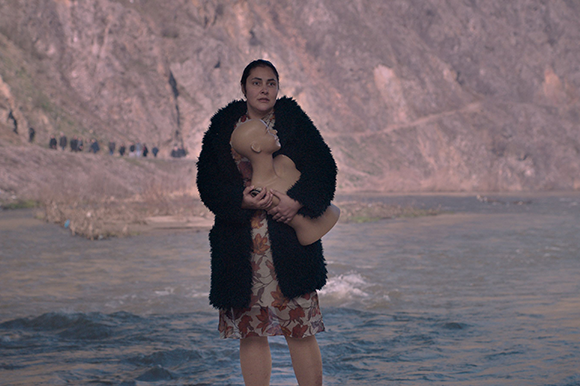 PRODUCTION
PRODUCTION
Seven Croatian feature films, including four debut features, were shot in 2019 with the support of the Croatian Audiovisual Centre (HAVC).
The biggest production was Murina, a debut feature by Croatian director Antoneta Alamat Kusijanović, shot on the Croatian coast in August 2019. The film is produced by Croatia’s Antitalent and Brazil’s RT Features of Rodrigo Teixeira, in coproduction with Sikelia Prods of Martin Scorsese and the local production company Spiritus Movens.
Spiritus Movens is also producing Family Dust / Kućna prašina, the debut feature of the awarded Croatian actress and director Nina Violić. The live-action parts were due to be completed in December 2019 and the puppet scenes will follow shortly afterwards. The premiere of the film, which portrays the final hours of a crumbling marriage, is expected in the summer of 2020.
Dario Lonjak shot his new comedy Wildlings / Divljaci in August 2019. The film is produced by Alka film and tackles the burning issue of irregular migration and people smuggling at Croatian borders, through the story of a corrupt border police officer played by Slaven Knezović.
The musical comedy Tune Up / Ufuraj se i pukni directed by Stanislav Tomić and produced by Kaos started filming in October 2019. The setting of this cultural heritage road film-action comedy is the Croatian folk scene and especially the traditional folk instrument tamburica. The film will be theatrically released by 2iFilm in July 2020.
Also in October 2019, Croatian helmer Zrinko Ogresta started filming his eighth feature film People Can’t Fly / Ljudi ne mogu letjeti. The film is produced by Interfilm from Croatia and coproduced by Zillion film from Serbia. The script is loosely based on the award-winning drama Play about Mirjana and Those Around Her, by the young Croatian playwright Ivor Martinić.
In November 2019, Eduard Galić started filming The Sixth Bus / Šesti autobus, a film about war atrocities in the besieged Croatian city of Vukovar in the 1990s. The filming on the production by MissArt coproduced by Global entertainment media from Australia, 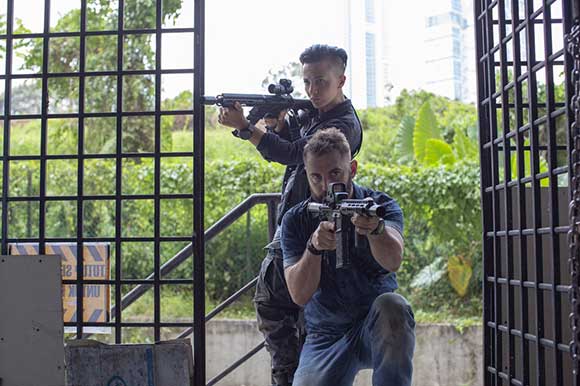 takes place in Vukovar, Zagreb, Glina and the Serbian capital Belgrade, and will last till the spring of 2020. The distribution is set to start in 2021.
takes place in Vukovar, Zagreb, Glina and the Serbian capital Belgrade, and will last till the spring of 2020. The distribution is set to start in 2021.
The end of 2019 was marked by the filming of The Staffroom / Zbornica, a debut feature by Sonja Tarokić, regionally famous for her witty short films with strong female protagonists. Zbornica is produced by Kinorama, with Marina Redžepović in the lead role of a young counselor who starts working in an unfriendly school environment.
It was a year with an absolutely record spending by international productions filming in Croatia. According to requests for cash rebates (12 projects in 2019), the local spend amounted to over 50.6 m EUR / 377 m HRK.
A record number of filming days was also recorded in 2019 - 421. Of these, 32 were recorded in regions of below average development, where additional 5% of the cash rebate applies.
As of July 2018, the cash rebate for filming in Croatia was raised from 20% to 25%, and up to 30% in underdeveloped regions. The total number of foreign productions using cash rebates since the start of implementing the Incentive Measures Programme exceeded 134 m EUR / 1 billion HRK by the end of 2019, with 70 applications submitted by foreign production companies.
The biggest international project filmed in Croatia in 2019 was Strike Back, a TV series produced by Left Bank Pictures. Embassy film was the local service provider, ensuring 120 days of filming in Zagreb, Trogir, Knin, Kistanje, Rijeka, Opatija, Obrovac, Zadar, Oroslavlje, Jastrebarsko, Velika Gorica, Jasenice, Ivanec and Samobor. Over 200 local film professionals and up to 3,000 extras were contracted for the production.
The filming of the A-list Hollywood feature film The Hitman’s Wife’s Bodyguard took place in April and May 2019. The film starring Ryan Reynolds, Salma Hayek, Samuel L. Jackson, Morgan Freeman and Antonio Banderas is directed by Patrick Huges and produced by Hitman 2 Production, with MP-filmska produkcija servicing. Over 200 production crew members and 750 extras were employed in 49 days of filming in Rovinj, Istra, Rijeka, Zagreb, Biševo, Pisarovina and Karlovac.
Other notable foreign productions include the German TV series Mordkomission, produced by Constantin Television, which filmed for 44 days in Split. The crime series is produced by Constantin Television for the ARD, with Pakt Media as service provider.
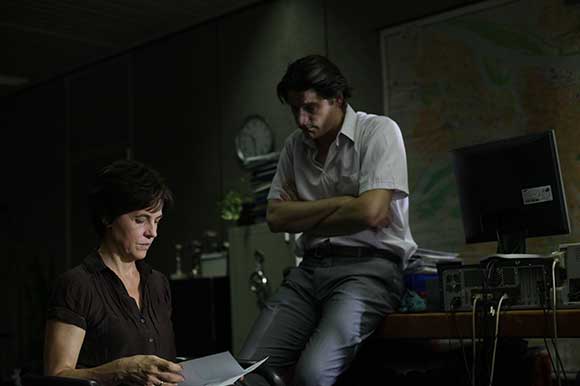 The post-apocalyptical film Mayday, produced by Mayday Pictures, was shot in Pula in over 38 days. The local service provider was Antitalent.
The post-apocalyptical film Mayday, produced by Mayday Pictures, was shot in Pula in over 38 days. The local service provider was Antitalent.
DISTRIBUTION
A total of 201 films were distributed in regular distribution in 2019, compared to 229 in 2018. There were 22 domestic releases in 2019, compared to seven in 2018.
The biggest domestic distributor is Blitz, followed by Editus, Continental Film, Discovery and 2i Film. There are 192 cinema screens in Croatia, out of which 74 are in public ownership.
The beginning of 2019 was successful for minority coproductions God Exists, Her Name Is Petrunija / Bog postoji, njeno ime je Petrunija by Macedonian director Teona Strugar Mitevska and Stitches / Šavovi by Serbian director Miroslav Terzić, both having their world premieres at the 2019 Berlinale. Both films, coproduced by Spiritus Movens, garnered two awards each.
The Macedonian/Belgian/Slovenian/Croatian/French coproduction God Exists, Her Name Is Petrunija won the Ecumenical Jury Award and the Guild Film Prize, the latter awarded by a jury comprised of members of the German Association of Art House Cinemas.
Stitches, a Serbian/Slovenian/Croatian/Bosnian coproduction, was awarded Best Film in the Panorama programme and it was also the Panorama Audience Award runner-up. Numerous Croatian film professionals worked on both of these films, while both of them were also long-listed for the European Film Awards’ nominations for Best European Film.
In November 2019, God Exists, Her Name Is Petrunija went on to win the 2019 LUX Prize awarded by the European Parliament. The film also received the Arab Critics’ Award for European Film, awarded by film critics from 13 Arab countries, at the Cairo IFF.
God Exists, Her Name Is Petrunija was produced by Sisters and Brother Mitevski in coproduction with Entre Chien et Loup, Deuxième Ligne Films, EZ Films, Spiritus movens and Vertigo.
Stitches was produced by West End Production in coproduction with Nora Production, Spiritus Movens and scca.Pro.ba.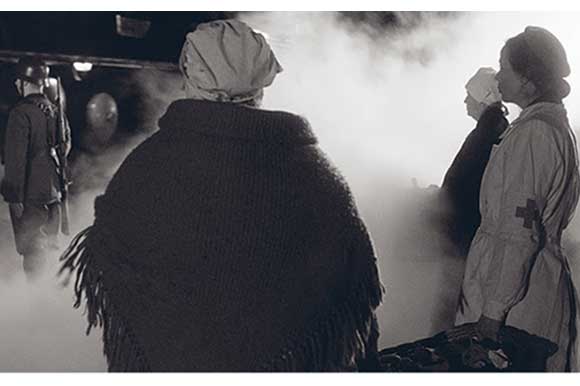
In July 2019, the Croatian minority coproduction Aga’s House / Agina kuća directed by Kosovar director Lendita Zequiraj and produced by n’Art Films in coproduction with Woof Films, Sacrebleu Productions, SKA-NDAL Production and SY13, won the Federation of Film Critics of Europe and the Mediterranean (FEDORA) Jury Special Mention at the 54th Karlovy Vary IFF.
Also in July 2019, director Dana Budisavljević triumphed at home, when her docu-fiction The Diary of Diana B. / Dnevnik diane Budisavljević won her the Golden Arena for Best Directing, which made her the third woman in history to be crowned with these laurels and the second female director ever to win the Grand Golden Arena for Best Film. The film garnered six awards at the Pula IFF, starting its Croatian cinema run at the beginning of October 2019 and receiving the Best Debut Film Award at the FilmFestival Cottbus in Germany in November 2019.
The Diary of Diana B. was produced by Hulahop in coproduction with This and That from Serbia and December from Slovenia.
In October 2019 eleven Croatian films were screened in the curated programme “A Flourishing Documentary Film Scene in a Country Full of Contradictions” at DOK Leipzig, in the Country Focus section.
In November 2019, Vinko Brešan’s black comedy What a Country! / Koja je ovo država won the Audience Award at the Thessaloniki IFF. The film was produced by Interfilm in coproduction with Orka Productions Studio from Poland and Zillion films from Serbia.
Barbara Vekarić’s feature debut Aleksi, produced by Studio Dim in coproduction with Filmkombajn, scooped 15 awards at 10 festivals around the world in 2019 alone.
The short animated film Imbued Life / Udahniut život by Ivana Bošnjak and Thomas Johnson won its 11th award for best short film at the Exground FF in Wiesbaden in November 2019. After its premiere at the Oberhausen FF, Imbued Life has been selected for over 60 international festivals.
EXHIBITION AND BOX OFFICE
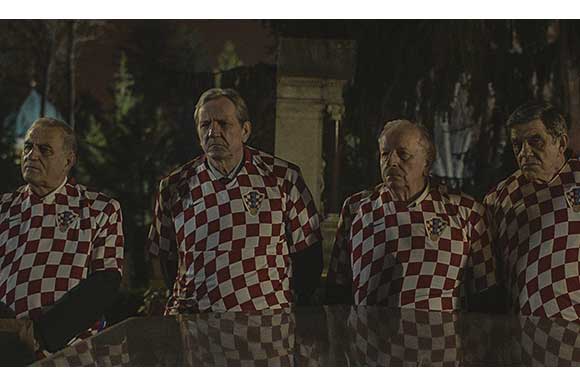 A total of 201 films were distributed in regular distribution in 2019. Total admissions were 4,912,282 in 2019, compared to 4,607,068 in 2018, with the total gross reaching 21.2 m EUR / 157.9 m HRK in 2019, compared to 19.5 m EUR / 145.1 m HRK in 2018.
A total of 201 films were distributed in regular distribution in 2019. Total admissions were 4,912,282 in 2019, compared to 4,607,068 in 2018, with the total gross reaching 21.2 m EUR / 157.9 m HRK in 2019, compared to 19.5 m EUR / 145.1 m HRK in 2018.
Domestic box office surged from 204,763 EUR in 2018 to 1 m EUR in 2019, with a total of 22 domestic releases in 2019, compared to seven in 2018.
The biggest exhibitor is Blitz Cinestar. Additionally, films are independently distributed through the Croatian Independent Cinemas Network, which includes 65 cinemas in 53 cities and on the islands.
In 2019, the central Croatian independent screening venue Kino Europa and main venue for the Zagreb Film Festival, was closed following months of political pressure. Another important venue in Zagreb’s city centre, Art kino Grič, was closed following the court decision to return the building to its pre-WWII owners.
However, in 2019 Kino Forum and Kino SC in the Zagreb Student Centre re-opened following the decision of the management, while Dokukino Kic, located in the city centre, re-opened after the refurbishing of the building.
According to Continental film, the general admissions top ten 2019 is composed of: The Lion King (259,427 admissions), Joker (236,587 admissions), Frozen 2 (197,900 admissions), Avengers: Endgame (192,283 admissions), Once Upon a Time… In Hollywood (121,229 admissions), Last Christmas (115,438 admissions), How to Train your Dragon 3 (110,947), Spider-man: Far From Home (100,841), Star Wars: The Rise of Skywalker (99,208 admissions) and Hustlers (89,006 admissions).
At the beginning of 2020, the Croatian Audiovisual Centre (HAVC) published the full box office statistics for 2019, based on data gathered from local distributors.
According to HAVC, the most viewed Croatian title of the year was The General, a biopic about the life of the war general Ante Gotovina, who was accused of war crimes in the 1990s. Directed by Antun Vrdoljak and produced by Kiklop film in coproduction with 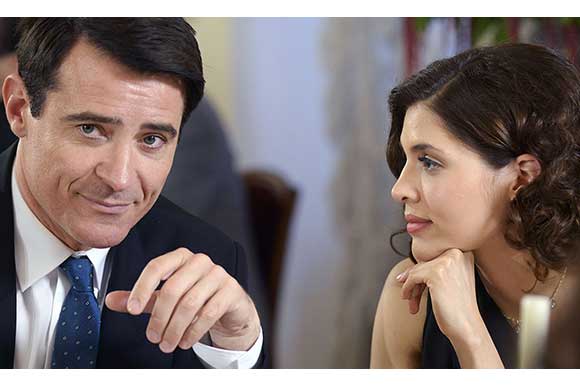 the Croatian Television, the film had 74,585 admissions in regular distribution and it was broadcast on the Croatian Television through 3 February 2020.
the Croatian Television, the film had 74,585 admissions in regular distribution and it was broadcast on the Croatian Television through 3 February 2020.
The second most viewed Croatian film was What a Country / Koja je ovo država, a dark political comedy by Vinko Brešan produced by Interfilm in coproduction with Orka Productions Studio from Poland and Zillion films from Serbia, with 58,265 admissions. Children's science fiction hit My Grandpa Is an Alien / Moj dida je pao s Marsa directed by Andrea Škop and Drazen Zarkovic, and produced by Studio Dim in coproduction with Senca Studio, MasterFilm, Fabrika, Wady Films, Artileria, Filmbin and the Croatian Radiotelevision, holds the third place with 29,025 admissions.
The fourth place with 28,072 admissions is reserved for The Last Serb in Croatia / Posljednji Srbin u Hrvatskoj, marketed as “the first Croatian zombie comedy from the future”. The film was directed by Predrag Ličina and produced by Kinorama in coproduction with Art & Popcorn. The award-winning docu-fiction The Diary of Diana B. directed by Dana Budisavljević and produced by Hulahop, is in the fourth place with 26,642 admissions.
The sixth and seventh spots on the list of domestic titles went to the independent comedies Ufuraj se i pukni by Ljubomir Kerekeš, produced by Kerekeš teatar, with 17,533 admissions, and Go, Went, Gone / Ideš? Idem! by debut director Ljubo Zdjelarević, produced by Kinoteka, with 8,138 admissions.
The social satire Extracurricular, directed by Ivan-Goran Vitez and produced by Interfilm, is 8th with 5,825 admissions, followed by the crime drama Mali directed by Antonio Nuić and produced by Propeler Film in coproduction with Alka film, with 5,535 admissions, and Punk documentary Tusta directed by Andrej Korovljev and produced by Factum in coproduction with Wake Up Films, Zagreb film, Award Film & Video, with 3,980 admissions.
GRANTS AND NEW LEGISLATION
The most important film institution is the Croatian Audiovisual Centre (HAVC) founded in January 2008. HAVC provides public funding for the development, production, promotion and sales of Croatian film abroad, festivals, schemes and programmes aimed at widening audience choice, supporting film education, culture and archives, as well as skills and training initiatives.
The total budget of HAVC in 2019 was 13.9 m EUR, according to the Ministry of Culture. HAVC operated with a total annual budget of 9.11 m EUR in 2012, a total budget of 9.30 m EUR in 2013, of 9.03 m EUR in 2014 and 7.99 m EUR in 2015. HAVC’s total budget for 2016 was 8.67 m EUR, in 2017 it was 10.15 m EUR and the total budget in 2018 (without the cash rebate) was 9.8 m EUR.
Christopher Peter Marcich was unanimously elected for a four year term as the new Chief Executive Officer of the HAVC, starting 1 May 2019. He replaced Daniel Rafaelić, who had stepped down in February 2019.
On 13 March 2019, HAVC distributed 3,892,222 EUR for the production of seven feature films, four experimental films, seven long documentaries, seven animated films and seven short films, as well as 23 project and script development grants. The biggest support, of 512,510 EUR each, was granted to the production of two feature films: Death of the Little Match Girl / Smrt djevojčice sa šibicama directed by directed by Goran Kulenović and produced by Livada Produkcija, and Little Tesla and the Idea Poachers / Mali Tesla i kradljivci ideja directed by Petar Orešković and produced by Nukleus Film in cooperation with Jaako Dobra Produkcija and in coproduction with Studio Virc (Slovenia), Dor film (Austria), Gargantua films (Serbia) and Sirena Film (Czech Republic).
On 9 October 2019, five equal grants of 538,300 EUR were given for the production of new feature films directed by Zvonimir Jurić, Lukas Nola (both produced by Kinorama), Rok Biček (produced by Antitalent), Vlatka Vorkapić (produced by Interfilm) and Dražen 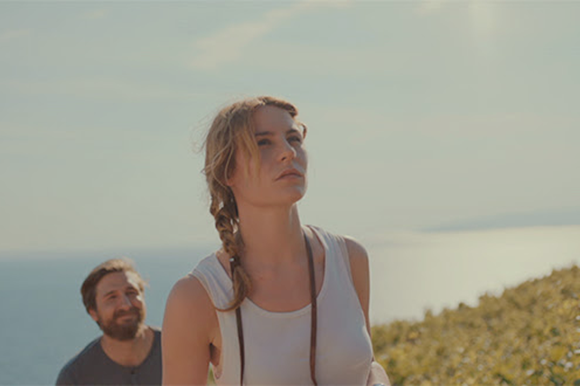 Žarković (produced by Izazov 356). A total of 4.3 m EUR was granted for feature film production, including four debut features.
Žarković (produced by Izazov 356). A total of 4.3 m EUR was granted for feature film production, including four debut features.
An additional 548,808 EUR was awarded to 20 documentaries and animated films, including the all-time high for a long documentary - 107,719 EUR for the new film of Igor Bezinović, Fiume o morte!, produced by Restart. Nine minority coproductions were also awarded a total of 403,198 EUR and five TV projects in development received 57,793 EUR.
The Croatian beneficiaries of the MEDIA sub-programme of the Creative Europe successfully concluded 2019 with a total grant of 805,831 EUR, which is the largest annual amount achieved in terms of funds since the Croatian entry into MEDIA. The record year so far had been 2015, when the Croatian filmmakers managed to secure 797,430 EUR.
In 2019, the Croatian applicants were successful in nine categories of MEDIA financing. Production companies Antitalent, Nukleus film and Restart provided a total of 100,000 EUR in the category of individual project development.
Antitalent is preparing a feature film based on the award-winning Croatian novel Black Mother Earth, written by Kristian Novak, while Nukleus Film and Restart are preparing two creative documentaries under the working titles Caught in the Net / Ulovljeni u mrežu directed by Anna Shishova-Bogolyubova and Museum of the Revolution / Muzej revolucije by Srđan Keča.
Kinorama received a grant of 88,000 EUR as part of a call for the development of a joint project, for the development of three feature films: The Fourth King / Četvrti kralj directed by Zvonimir Jurić, Traces / Tragovi directed by Dubravka Turić, and Sandbag Dam / Zečji nasip directed by Čejen Černić. Within the same type of support, the category "incentive for new talent" also provided financial support for one short film - Sphere / Sfera directed by Manuel Šumberac.
A total of 70 foreign productions have used the tax incentives scheme since its launch in 2012: five in 2012, four in 2013, eight in 2014, ten in 2015, seven in 2016, eleven in 2017, fourteen in 2018 and twelve in 2019.
Under the Croatian cash rebate scheme, projects can claim back 25% of their qualifying expenditure, which is based on the cost of the Croatian cast and crew working in Croatia, as well as goods and services purchased in Croatia, with a cap of around 2.6 m EUR per project. Additional 5% is awarded to productions in regions of below average development.
Filming in Croatia, a department within the HAVC, ensures that Croatia remains a film-friendly location for both local and visiting filmmakers.
Zagreb Film Office was launched in 2019, with a goal of assisting both local and international film crews in their work in the Croatian capital. The Zagreb Film Office will work under Zagreb Film, a city-funded institution known for its animation production, led by Vinko Brešan. The office is led by the local producer Mia Pećina Drašković.
The Istria Film Commission was launched in July 2015, following the example of the Zadar Film Commission in helping filming crews in location scouting, communication with public authorities and domestic producers and crew, obtaining filming permits and accessing databases. Kvarner Film Commission opened in Rijeka in 2017.
Additional public support bodies are the Zagreb City Office for Education, Culture and Sport and the Rijeka City Office for Culture.
In 2019, Croatia announced that it will build a new film studio near Zagreb to accommodate its rapidly growing business as a services provider for both domestic and international productions. The new initiative was introduced by the Croatian Audiovisual Centre, together with local producers and the Ministry of Culture.
In addition to the new Law on Audiovisual Activities dating from 2018, the Ordinance on the Promotion of Investment in the Production of Audiovisual Works was adopted in 2019.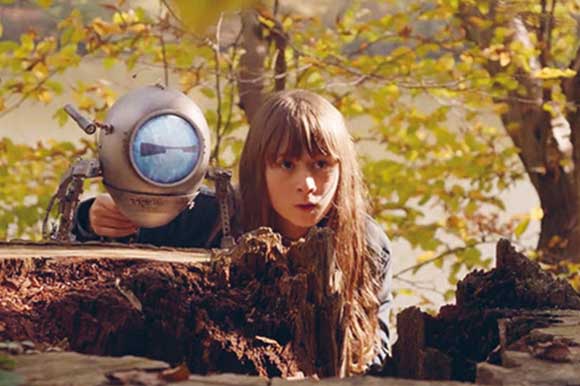
The adoption of a new Rulebook on the procedure, criteria and deadlines for the implementation of the National Programme for the Promotion of Audiovisual Creativity, is currently in its final stages.
With respect to other laws relevant to the audiovisual sector, the following laws are currently in the process of aligning national legislation with European directives:
Electronic Media Law - Compliance with AVMSD (Audiovisual Media Services Directive)
Copyright and related rights law - Compliance with the Directive on Copyright in the Digital Single Market and the Sat Cab 2 Directive.
TV
As stipulated by the 2007 Croatian Film Act, the Croatian public broadcaster Croatian Radiotelevision (HRT), as well as all other Croatian broadcasters with a national concession (Nova TV, RTL), are obliged to contribute towards the funding of the HAVC.
As a public broadcaster, the Croatian Radiotelevision plays an important role in the promotion of national cinema through its two terrestrial and two digital channels, and is legally obliged to invest a minimum of 15% of its programming budget in works by independent producers.
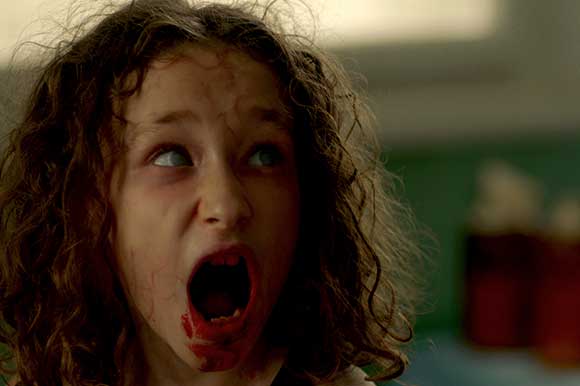 The biggest TV series produced for the Croatian Radiotelevision in 2019 was The General, an eight-episode TV series directed by Antun Vrdoljak and based on his 163-minute feature film. The total budget of the project was estimated at over 3 m EUR. The Croatian Television contributed with 1.23 m EUR, while the Croatian Audiovisual Centre supported it with 568,644 EUR.
The biggest TV series produced for the Croatian Radiotelevision in 2019 was The General, an eight-episode TV series directed by Antun Vrdoljak and based on his 163-minute feature film. The total budget of the project was estimated at over 3 m EUR. The Croatian Television contributed with 1.23 m EUR, while the Croatian Audiovisual Centre supported it with 568,644 EUR.
Uspjeh, the first original HBO series for HBO Adria, premiered in January 2019. The six-part series was written by Marjan Alcevski and directed by Danis Tanović. The script was chosen from among 570 applications to the HBO Adria “First Draft” competition.
The Croatian drama series Newspapers / Novine directed by Dalibor Matanić filmed its third and final season in May 2019. The first season of Newspapers, which was sold to Netflix in 2015, became available in 130 countries. The final season will be screened in 2020, first on Croatian Television and then on Netflix for subscribers in 198 countries. The series was produced by Drugi Plan for the Croatian Television, with a budget of approximately 1.3 m EUR per season.
CONTACTS:
Croatian Audiovisual Centre (HAVC)
Nova Ves 18
10 000 Zagreb, Croatia
Phone: +385 (0)1 6041 080
Fax: +385 (0)1 4667 819
www.havc.hr
This email address is being protected from spambots. You need JavaScript enabled to view it.
MEDIA Desk Croatia
Ulica Kralja Zvonimira 20
10 000 Zagreb, Croatia
Phone: +385 (0)1 4655 434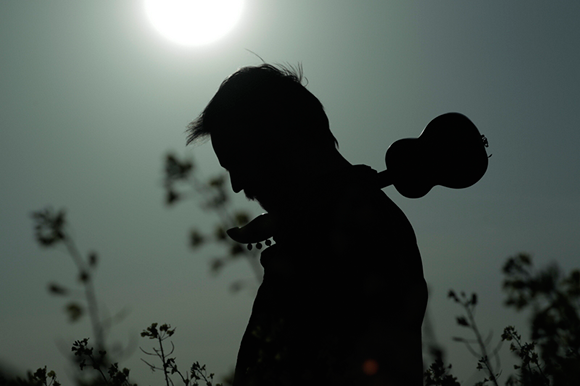 Fax: +385 (0)1 4655 442
Fax: +385 (0)1 4655 442
www.mediadesk.hr
This email address is being protected from spambots. You need JavaScript enabled to view it.
Ministry of Culture- Directorate for Performing Arts and Audiovisual Affairs
Runjaninova 2
10 000 Zagreb, Croatia
Phone: +385 (0)1 4866 408
Fax: +385 (0)1 4866 438
www.min-kulture.hr
Report by Milena Zajović (2020)
Sources: the Croatian Audiovisual Centre, Continental Film, the Ministry of Culture

